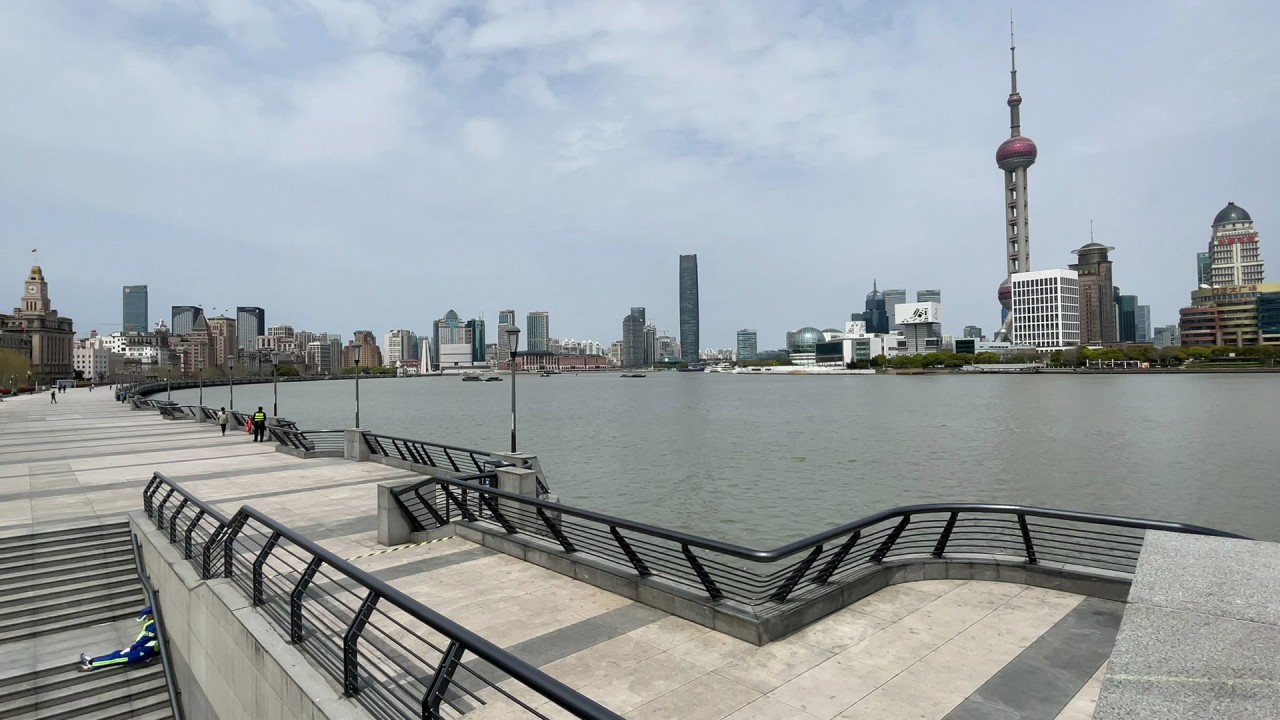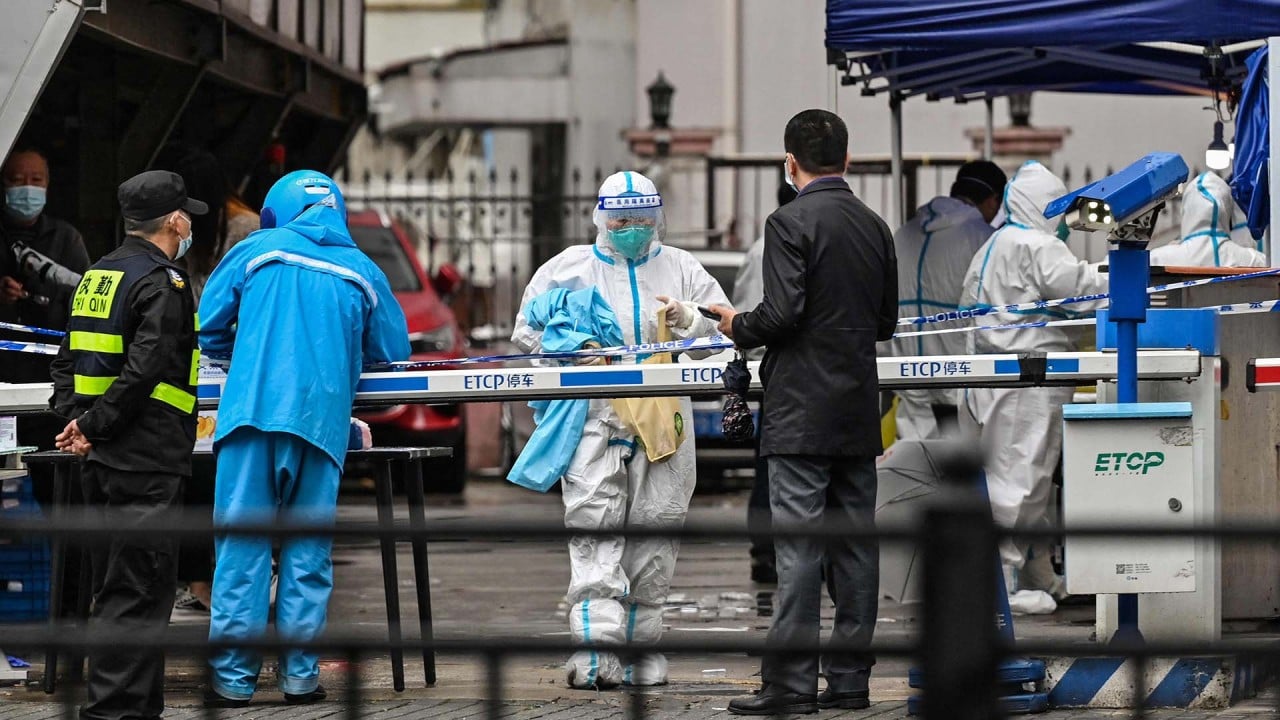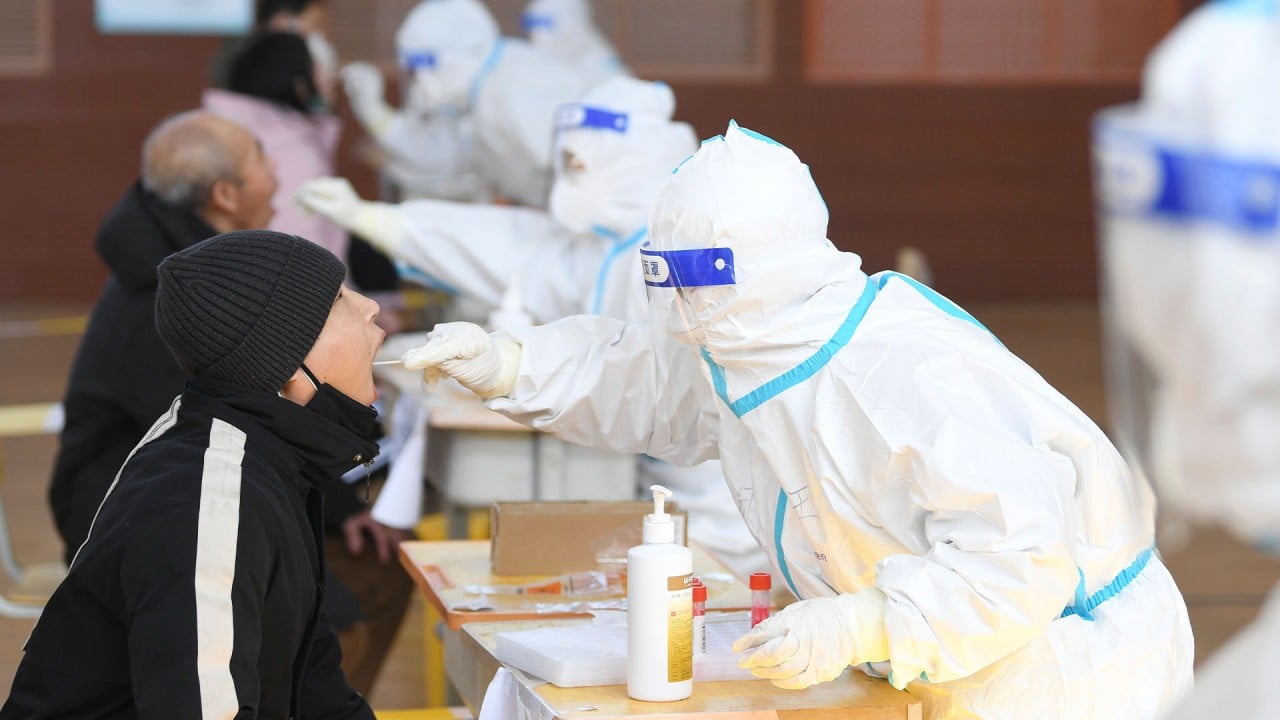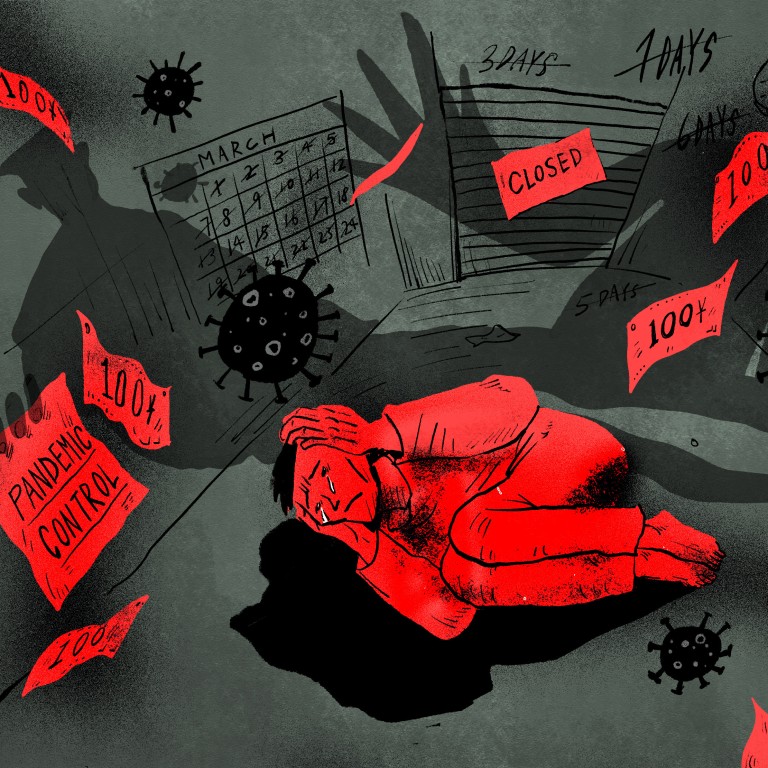
Coronavirus: China’s small firms bemoan lack of support as Omicron wave threatens economic recovery
- China’s small companies are crying out for more support from Beijing as the latest Omicron wave casts a cloud over the economy
- Owners say government tax rebates do not compensate them enough for lost business caused by strict pandemic controls
Amid a surge of Omicron infections sweeping China, Tang Lin has watched business dry up at her small noodle soup restaurant in Nanning, the capital of Guangxi province in southern China.
Though the city has reported only three cases of the highly transmissible coronavirus variant since March 1, stringent pandemic controls have hit small businesses hard.
Internet cafes, karaoke parlours and bars have been forced to suspend operations, while some eateries in her neighbourhood are making less than 1,000 yuan (US$157) a day and have begun laying off staff, Tang said.
“More small business owners are trying to sell their properties in order to raise cash to pay for rent and labour, but it is hard to find buyers as the property market is sluggish as well,” said Tang.
We don’t have income, so what’s the point of a tax cut?
China announced 2.5 trillion yuan worth of tax rebates for this year. Businesses will receive a 3 per cent exemption on value added tax and some small firms will have income tax slashed to 20 per cent from 25 per cent. Small businesses will also be eligible for a 1.5 trillion yuan rebate on value added tax to ease financial burdens.
But many business owners say that is not enough, as China’s zero-Covid policy puts huge strain on operations with lockdowns, transport restrictions and mass testing.
“We don’t have income, so what’s the point of a tax cut?” Tang said.
Guangdong province, which was hit by Omicron outbreaks in early March, has pledged financial aid, tax exemptions and credit financing to help the service industry.
A 50 per cent tax exemption will be granted to micro and small enterprises, as well as businesses with monthly sales of 150,000 yuan or less or quarterly sales below 450,000 yuan.
Consumption and service vouchers will be given to pandemic-stricken businesses in the catering and retail industries to spur consumer demand through discounts.
Staff in the two industries will receive subsidies of more than 50 per cent on regular nucleic acid tests.
6 takeaways from China’s ‘two sessions’ and the economic turmoil that followed
Lao Momin, who runs a small cultural and advertising consultancy, said companies are facing a tougher situation compared to when the pandemic first rippled through the economy, and the latest tax cuts were not as effective as those in 2020.
“The pandemic controls are too strict, making it impossible for companies to conduct business normally. This is the most deadly stage for small and micro businesses,” he said.
“Social security expenses should be exempt at this time. As long as the area is locked down, the government should pay or at least subside the rent in full for the affected enterprises and individuals, and the loan of the enterprise should be extended.”
After assessing the support measures released by the Guangdong provincial government last week, Lao’s accountant concluded most did not apply to small businesses like his.
One item I can benefit from is the 50 per cent refund for unemployment insurance, which is about several hundred yuan a year
“One item I can benefit from is the 50 per cent refund for unemployment insurance, which is about several hundred yuan a year,” he said.
At a Politburo meeting in the middle of March, President Xi Jinping said coronavirus control would be the top priority if outbreaks worsened, although he acknowledged the need to balance this with the impact on the economy.
While frustration is growing among domestic and foreign businesses in China, stringent virus controls are likely to continue as the government is focused on maintaining political stability ahead of the 20th Communist Party Congress this autumn.
Since mid-March, at least 18 cities accounting for 8.5 per cent of China’s gross domestic product (GDP) have imposed large-scale lockdowns, with another 20 cities accounting for 13 per cent of GDP, implementing less severe ones, according to an estimate by Cui Ernan, an analyst with Gavekal Dragnomics.
“These cities and their surrounding regions – together almost 22 per cent of GDP – are most likely to see broader economic disruption including supply-chain problems,” Cui said in the report on Tuesday.
“Beijing is, however, stepping up measures to support small businesses so that they are not forced to lay off workers. Most likely, the government will end up accepting that falling short on its 5.5 per cent GDP growth target for 2022 is inevitable given shocks like these.”
In Guangzhou, merchants at the city’s garment wholesale market have been on strike since last Tuesday, calling for a reduction in rent or an exemption, said Wang Xiu, an industry insider.
‘Under great pressure to survive’, China’s small firms close at record pace
“Guangzhou is the hub of nationwide garment wholesale business, but now fewer people come to place orders,” he said. “On the other hand, the annual rent for a store with a few square metres rose to nearly one million yuan.
“The upstream business is stranded due to disruption to demand and production by the nationwide Covid-led restrictions. Downstream, garment processing factories across Guangdong have to close one after another.
“It would also lead to a large number of skilled workers either leaving Guangzhou or looking for other casual work. In the coming months, some may find the living expenses in the city are unaffordable.
“What would make things more risky, small business owners or employees would have face growing pressure to repay mortgages either in Guangzhou or in their hometown cities.”
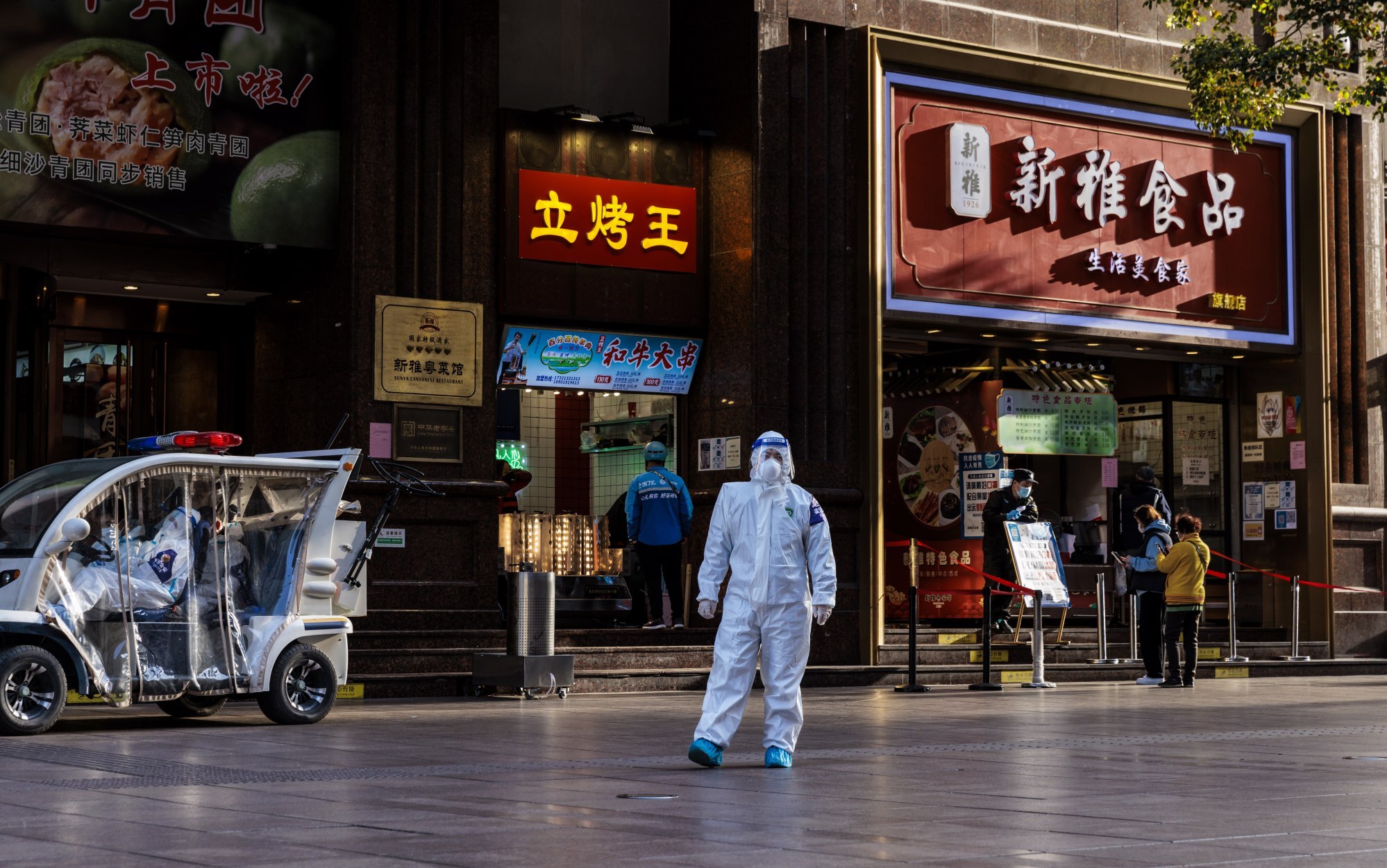
China’s State-owned Assets Supervision and Administration Commission has said small and micro businesses in the service sector will enjoy three to six months of rent reduction this year if their contract is with central government-owned companies.
Tenants of private properties, including some garment wholesale markets in Guangzhou, are unable to enjoy the rent deduction.
Liu Yuanchun, an economist and vice-president of Renmin University in Beijing, said tax cuts and other cost reductions are important for small and micro businesses, “but what is most crucial is orders so they can continue production”.
“The government should offer more delicate support to small business, such as offering financial subsidies while encouraging big enterprises or big projects to place orders with small and micro firms,” Liu said.
“The government can also consider government procurement from small and medium-sized enterprises.”
Shanghai offers US$22 billion aid for businesses to survive lockdown
Authorities should be alert to the risk of cash flow breakdown among small and micro businesses, said Huang Yiping, an economist with Peking University and a former central bank adviser.
On top of issuing subsidies to small businesses, the government should also take measures to reduce overdue payments owed by big companies to small firms, he said.
“If small and medium-sized firms can make it through this year, the situation will not be hard next year,” Huang said at an economic forum in March.
Jia Kang, the former head of the finance ministry’s research institute, warned that the current coronavirus wave seems to have put small and micro firms into survival mode once again.
Economists expect more hard times on the way for small businesses, due mainly to escalating Omicron control measures and a slowdown in the property sector, which is likely to be reflected in second quarter economic growth figures.
In recent weeks, almost all data has pointed to a deteriorating economic environment, including mobility and consumption, shipment and throughput, industrial production and construction materials, as well as property and prices for industrial and agricultural goods, according to Nomura’s Asia Insights report released this week.
The seven-day average of the Baidu Migration Index (BMI) on Sunday was 39.6 per cent below the same level a year ago, down from 31.3 per cent a week earlier, said the report.
When it came to domestic air passenger flows, the seven-day average of actual flights to scheduled flights slumped to 24.5 per cent on March 27, down from 31.2 per cent a week earlier.
The seven-day average for metro passenger trips in eight major cities, including Beijing, Shanghai, Guangzhou, Chengdu, Nanjing, Wuhan, Suzhou and Chongqing, was 37.9 per cent below the same level a year ago on March 27, a slip from a 34.8 per cent contraction a week earlier.
In Shanghai, which is in the middle of a two-stage lockdown, the seven-day average for metro passenger trips was 81.4 per cent below the level on 27 March last year.
A seven-day average of new home sales for 30 cities was 49.9 per cent down on March 26 from a year earlier, up slightly from a 54.6 contraction a week earlier.
For Ken Liu, a supplier of industrial digital printing equipment, the struggle will continue as coronavirus outbreaks linger.
“Last week was really frustrating,” he said. “Almost all schools and businesses in my home county of Miyang in Henan province suddenly stopped yesterday because of two Covid-19 cases found on Sunday. Meanwhile one customer cancelled an order for 20 machines because he was pessimistic about the domestic market.”
Additional reporting by Orange Wang


